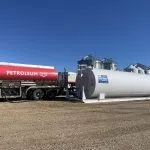
Looking for better ways to manage nitrogen
Farmers need to feed the plants that are the foundation of the food supply.
Nitrogen fertilizer gives crops key nutrients, but the century-old process used for fertilizer production has significant energy demands.
The University of Saskatchewan’s (USask) Dr. Kate Congreves (PhD) is part of a group of researchers that are looking at emerging technologies for greener fertilizer.
“Nitrogen fertilizer was originally created by the Haber-Bosch process, which is very energy intensive, but there are new technologies that can produce ammonia which could end or modify that process by using renewable energy,” Congreves said.


